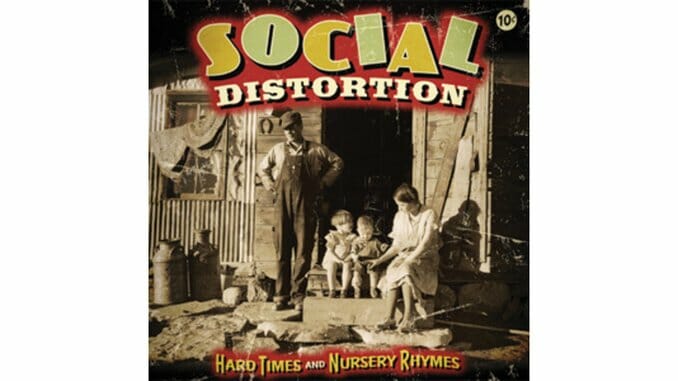Social Distortion: Hard Times & Nursery Rhymes

The smartest thing Social Distortion ever did was embrace country music. In the mid 1980s, following a sizable hardcore hit with “Mommy’s Little Monster,” the band melded their manic punk with messy country and came up with a sound that wasn’t exactly unprecedented (X, for instance, got there first) but was distinctive and rambunctious. And durable: A quarter-century and a handful of albums later, the Los Angeles outfit has barely changed its sound at all, which sounds all the more relevant in the wake of newer acts like the Hold Steady, the Gaslight Anthem and Lucero.
-

-

-

-

-

-

-

-

-

-

-

-

-

-

-

-

-

-

-

-

-

-

-

-

-

-

-

-

-

-

-

-

-

-

-

-

-

-

-

-








































